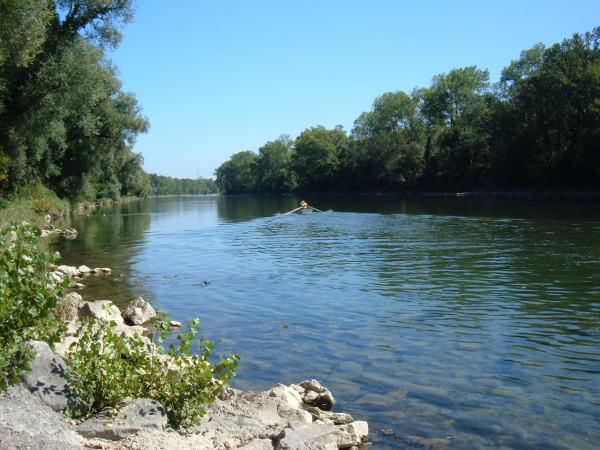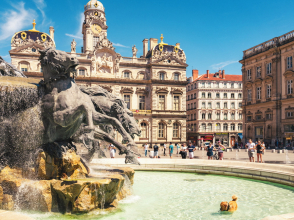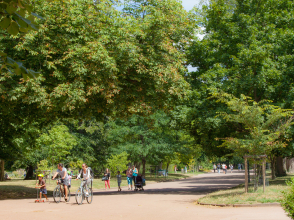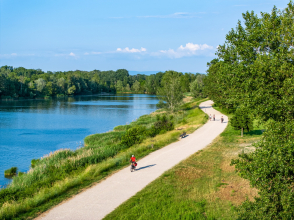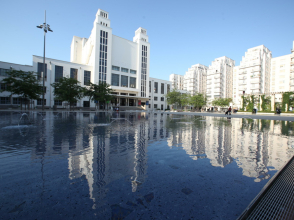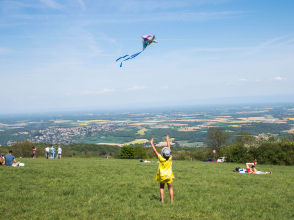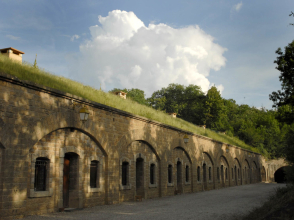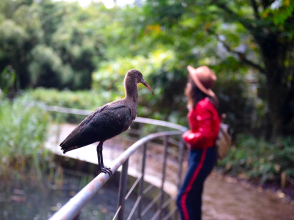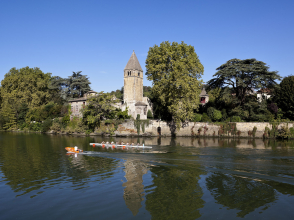- Sustainable Tourism in Lyon
- Itineraries to explore Lyon on bicycle
Itineraries to explore Lyon on bicycle
Sustainable Tourism in Lyon
Last updated date : 10/10/2024
Our diverse and varied selection of itineraries to discover Lyon’s heritage by bicycle, Vélo’v (Lyon’s shared cycle scheme) or electric bicycle, for cyclists of all levels.
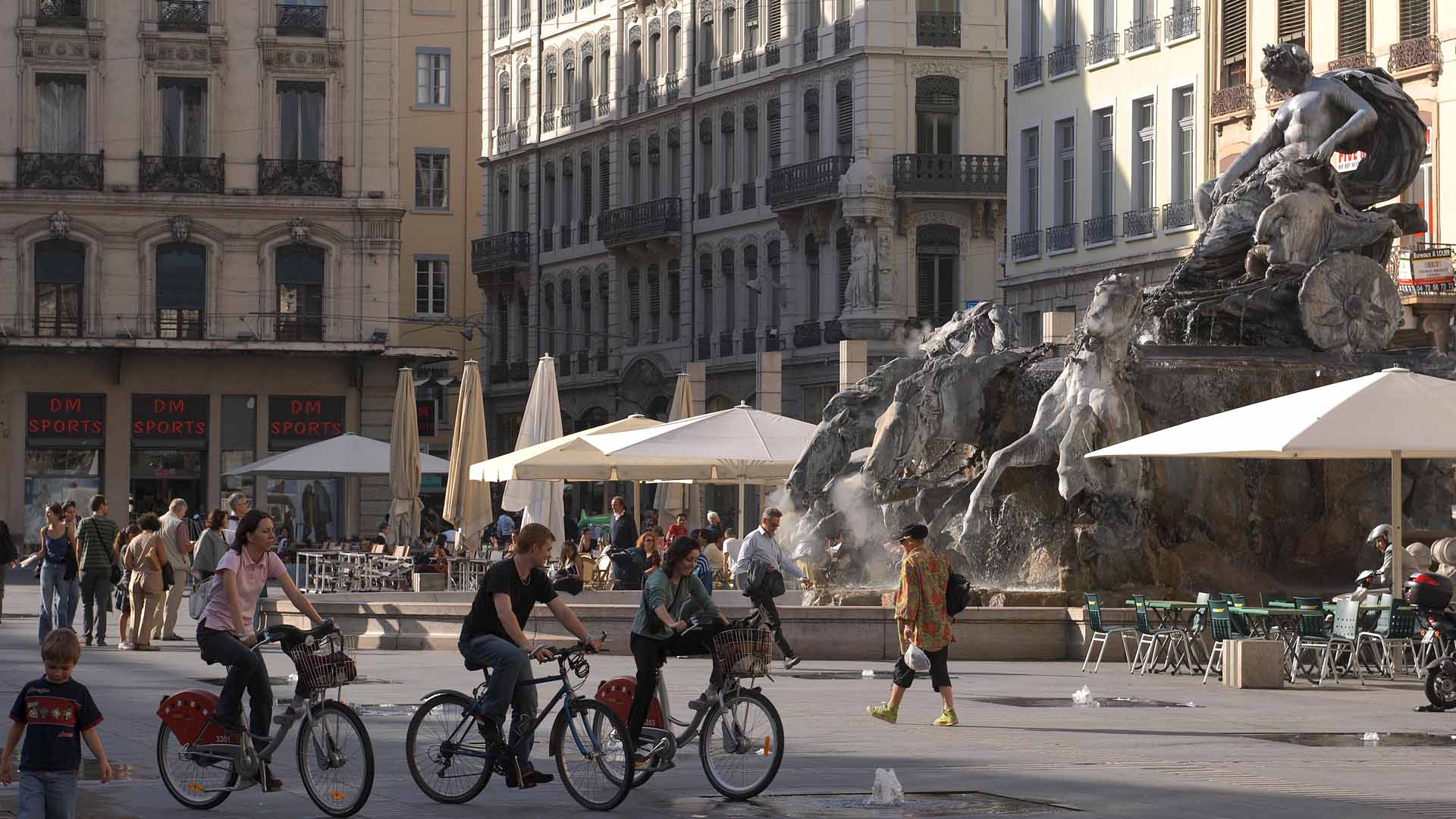
See all pictures
These routes have been provided for you by the Greater Lyon authority to offer a range of cycle tours combining heritage and nature. They are of varying distances and difficulty levels to meet the needs of visitors, local residents, families, sportspeople, cyclists with disabilities and more…
All safe and tested, they were produced by the journalist Pierre Gouyou Beauchamps. He has created, covered and written more than ten cycle touring books for Lonely Planet, and also regularly publishes travel articles in specialist cycling magazines.
The essentials: 14km, Place Bellecour – Tête d’Or Park – Place des Terreaux – Vieux-Lyon (Old Lyon)
This itinerary, which includes several essential places to visit in Lyon, begins on Place Bellecour. Measuring 62,000 m², this is Lyon’s largest square and the largest pedestrian square in Europe. It offers excellent views of the surrounding architecture and the Notre-Dame de Fourvière Basilica.
Here, you will find Vélo'v stations, where you can hire a bicycle for a few hours, and specialist shops that rent electric bikes, push bikes and scooters, such as the Fix&Move kiosk on the square.
Begin the itinerary by heading towards the Banks of the Rhône along the cycle path from Place Bellecour, through Place Antonin Poncet and across Guillotière bridge, where you will find a cycle path on the banks. This offers a chance to ride on a section of the ViaRhôna, an 815 km cycle route connecting the Mediterranean to Lake Geneva, and a view of the the Hôtel-Dieu building.
Continue up the banks of the Rhône, which are shaded and very pleasant in summer, towards Tête d’Or Park. The many river boats along the way offer a chance to stop for a drink and soak up the typically Lyonnais atmosphere. You will find Vélo’v stations and rings to park your bike all along the route. You will also find play areas and slides for children.
When you arrive at the ‘Enfants du Rhône’ entrance of Tête d’Or Park, you can choose between two options: enter the park on bicycle, cycling at a leisurely pace, or leave your bike outside the park to enjoy a stroll on foot. Around the lake, other means of transportation are available: pedalos and rowing boats on the lake, as well as ‘rosalies’, or rental quadracycles, to explore the paths of the park as a family or small group.
To reach the next stop on the itinerary, Place des Terreaux, return to the banks and cross the river at Pont Morand. You can then cycle past the Opera House, renovated by the architect Jean Nouvel. Make sure you look up to see the eight statues standing on the pediment, known as the Muses. Standing opposite is the Hôtel de Ville (city hall), one of Lyon’s most remarkable monuments. Continue on to the Place des Terreaux, where you will find the Musée des Beaux-Arts (Museum of Fine Arts) on the southern edge of the square. In the centre, the Bartholdi fountain stands proudly.
Next, you can stop at the mural known as the ‘Fresque des Lyonnais Célèbres’, which depicts local figures that are the pride of Lyon.
Cross Pont de la Feuillée to reach the cycle path along the banks of the Saône, from St-Paul to Vieux-Lyon (Old Lyon), and then explore Lyon’s medieval and Renaissance district. We recommend parking your bike and doing this bit on foot, as the narrow cobbled streets here are not suitable for cycling.
Finally, make your way back to Place Bellecour by cycling down the Saône to Pont Bonaparte.
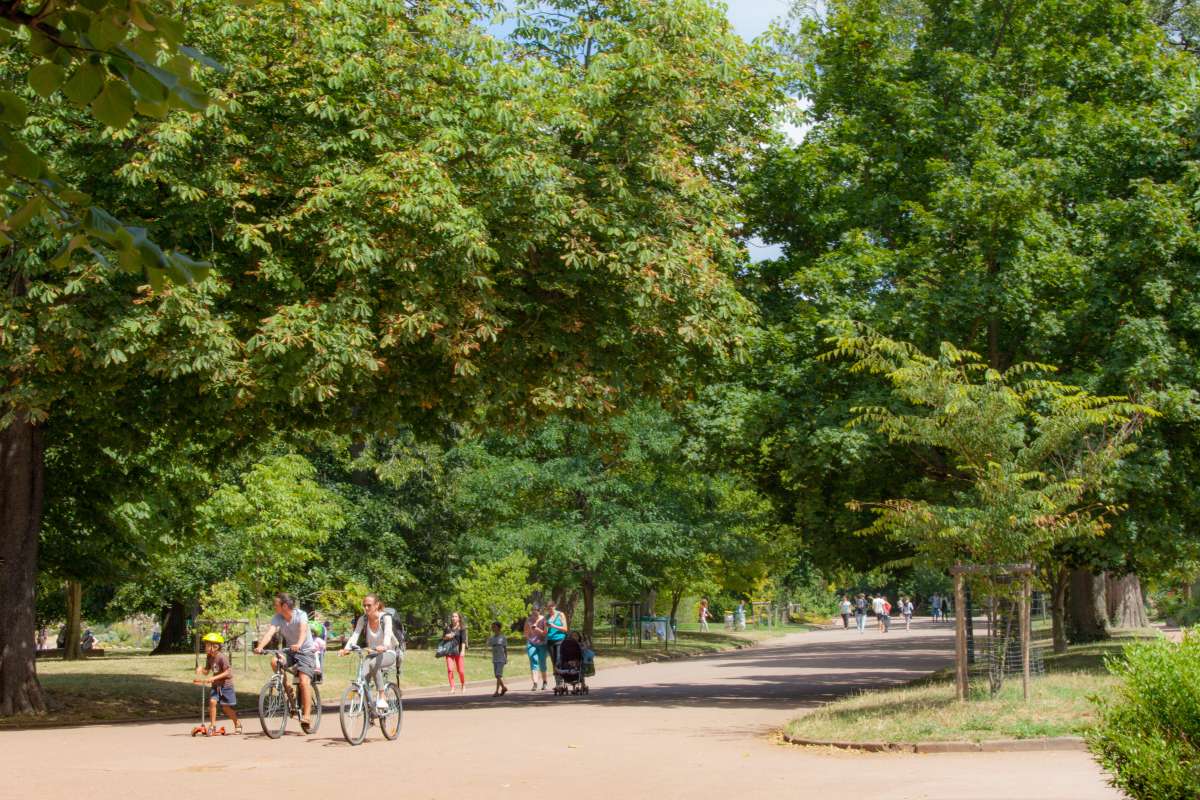
Practical info
The essentials
- Distance: 14 km
- Duration: 50 minutes, not including stops to explore and visit the listed locations
- Moderate slope
- Vélo'v stations along the route:
- Place Bellecour: station n°2002, next to Rue Lintier
- Berges du Rhône, Quai Augagneur, near the river boats: station n°3044, between Rue de Bonnel and Rue Rabelais
- Parc de la Tête d'Or, 'Porte des Enfants du Rhône' entrance: station n°6002, along the railings, on the western side of the entrance.
- Vieux-Lyon, Rue de la Baleine: station n°5026, on the corner of Quai Romain Rolland
Contemporary and Renaissance Lyon: 14 km from Confluence to Vieux-Lyon (Old Lyon)
This second itinerary offers a chance to travel back in time: explore architectural trends that have shaped the city’s development, from the contemporary period all the way back to medieval times.
The starting point is Cours Charlemagne, with its modern architectural structure known as the ‘Orange Cube’, near the Confluence shopping and leisure centre, where you will find places to hire a bike. Located at Lyon’s former industrial port, the Orange Cube designed by the architects DJBMF is striking for its colour and its facing, which is reminiscent of the rust on ship hulls. It pays tribute to the district’s industrial past.
The cycle path along the river Saône will take you past a series of fascinating buildings that form part of this district’s identity, representing various periods and influences: Ycone tower, La Sucrière, Euronews' 'Green Cube' …
Further down, at the confluence of the rivers Rhône and Saône, perhaps the most striking of all is the successor of the Musée Guimet, Lyon’s former natural history museum: the Musée des Confluences. In a monumental structure that is somewhere between a crystal and a cloud, this museum of history and civilizations offers a permanent exhibition trail and temporary exhibitions, as well as shows and workshops. From its rooftop, which can be accessed for free, you get a stunning view of Lyon and the Alps. Right at the tip of the confluence, the garden is a pleasant spot to enjoy a picnic as you contemplate the merging of the two rivers.
From the Banks of the Rhône, it is a straight line all the way up to Tête d’Or Park. Along the river, you will find play areas, calm sports, pétanque pitches and sports facilities. When you arrive at the park, you are free to explore it by bicycle or on foot.
Alternatively, you can choose to have lunch on the other side of the Rhône to admire the museum from the opposite bank. To do so, cross Pont RB and follow the cycle path to the river bank. Here, you will find many benches and shaded spots.
Next on the itinerary is the world’s first tunnel reserved for non-motorised transport. Cross Pont de Lattre-de-Tassigny, which will take you directly to the 1700-metre-long Tunnel of Croix-Rousse, which has several displays on its walls. This underground journey is enhanced by light installations. Its coolness is also much appreciated on a long bicycle ride in the summer.
On the other side, you will come out next to the Saône. Cycle along Quai JG and then Quai St-Vincent, where you will find Les SUBS, a former convent that has become a home for art, including drama, dance and music. Each summer, an artist is invited to transform the exterior into an immersive artwork.
Lastly, make your way to Vieux-Lyon (Old Lyon), via the cycle path, which begins on the other side of Pont La-Feuillée. Park your bike near the Cour d'Appel de Lyon (Lyon Court of Appeal), known as ‘les 24 colonnes’ (the 24 columns), where you can watch the waters of the Saône flow beneath the Passerelle du Palais de Justice (footbridge of the law courts). Here, you can contemplate the statue ‘The Weight of Oneself’, before entering Vieux-Lyon (Old Lyon) on foot.
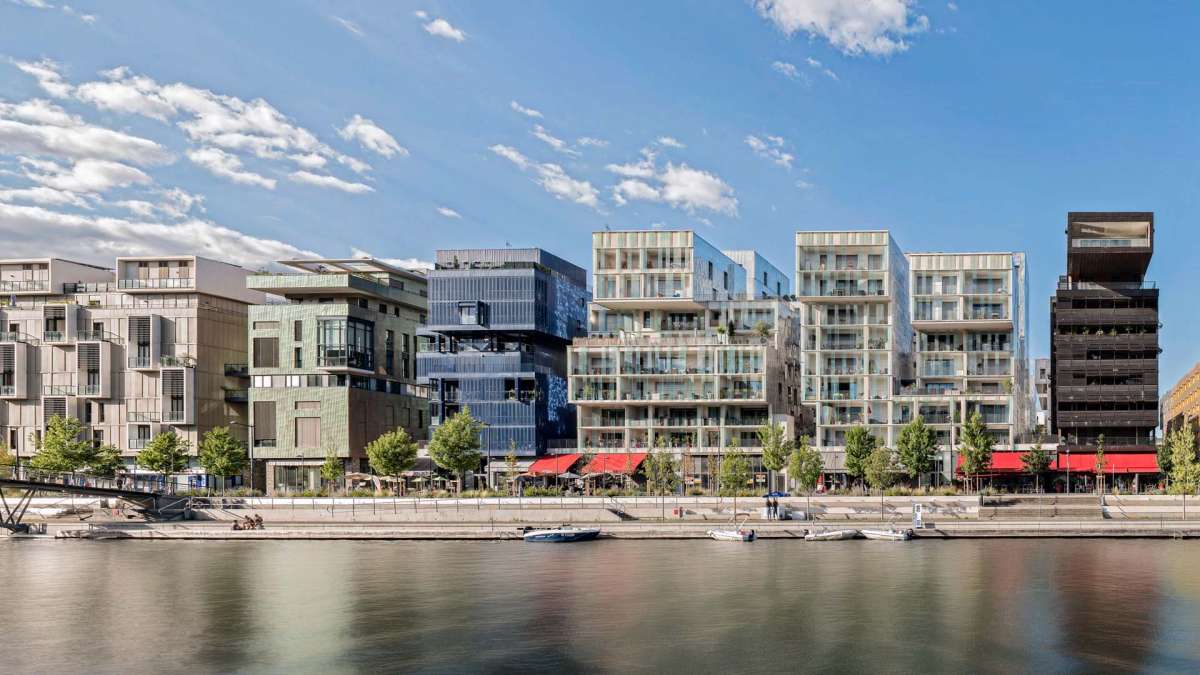
Practical info
Contemporary and Renaissance Lyon
- Distance: 14 km
- Duration: 50 minutes, not including stops to explore and visit the listed locations
- Mostly flat
- Vélo'v stations along the route:
- Confluence Shopping Centre: station n°2005, 101 cours Charlemagne Lyon 2 towards the city centre. In front of the Hôtel de Région.
- Musée des Confluences: station n°2020, the square in front of the Musée des Confluences
- Banks of the Rhône, near the sports pitches: station n°7002, Quai Claude Bernard
- Parc de la Tête d'Or, Porte des Enfants du Rhône : station n°6002, along the railings, on the western side of the entrance gate
- Les SUBS: station n°1006, 12 Quai St Vincent
- Quai Romain Rolland: station n°5006, in front of the old 'Palais de Justice' (i.e. law courts)
The hill that prays: 3 km, up to Notre-Dame de Fourvière Basilica
This is an amazing itinerary: make your way up to the Notre-Dame de Fourvière Basilica by bike.
If you don’t fancy pedalling your way up the hill, you can take an easy and pleasant option by riding the funicular from St-Jean to Fourvière. Outside of peak times, you can put your bicycle in one of the cars.
For those who want to take the challenge with an electric bike, ride up Montée St-Barthélemy from Place St-Paul, and then Montée CD, which will take you up the hill. These slopes are not for the faint hearted! Along the way, you will find some must-visit attractions, including Lugdunum Museum and the Roman Theatres, as well as the historical site of the Antiquaille.
To get back down, carefully make your way down Montée St-Barthélemy, at Place des Minimes, then take Montée du Chemin-Neuf until you reach Vieux-Lyon (Old Lyon).
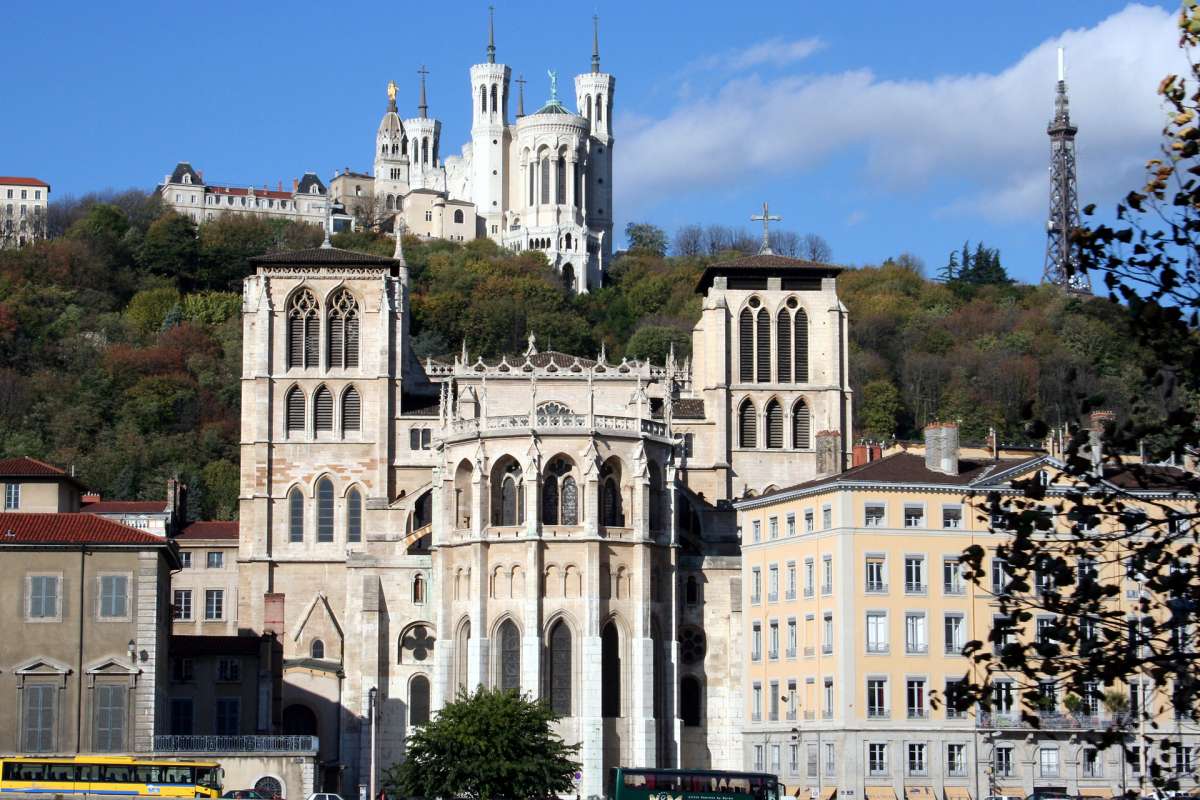
Practical info
The hill that prays
- Distance: 3 km
- Duration: 21 minutes, not including stops to explore and visit the listed locations
- Very steep slope
- Electric bike recommended
- Not recommended with children
An exploration of the river Saône: 13 km return trip from Vieux-Lyon to Île Barbe
A haven of peace just 6 km to the north of Lyon city centre Île Barbe is an ideal destination for a bike ride. This island of legends was home to an abbey, of which only the Romanesque church of Notre-Dame remains.
To get to the island, simply ride up the cycle path along the banks of the Saône from St-Jean Cathedral to Île Barbe. It will take about twenty minutes or so to get from one to the other. This is a very safe path, separate from the road, which is ideal for children.
Along the way, you will find various footbridges spanning the Saône, the colourful façades of residential buildings along the banks, the Fort de Vaise and more.
Before reaching the island, you can stop to pick up some of the delicious bakery treats sold at Boulangerie Jocteur, which you can enjoy in the picnic and play area on the island.
Don’t leave before visiting Musée Jean Couty, a museum devoted to the works of a famous local artist, on Place Henri Barbusse.
Take the same route to make your way back.
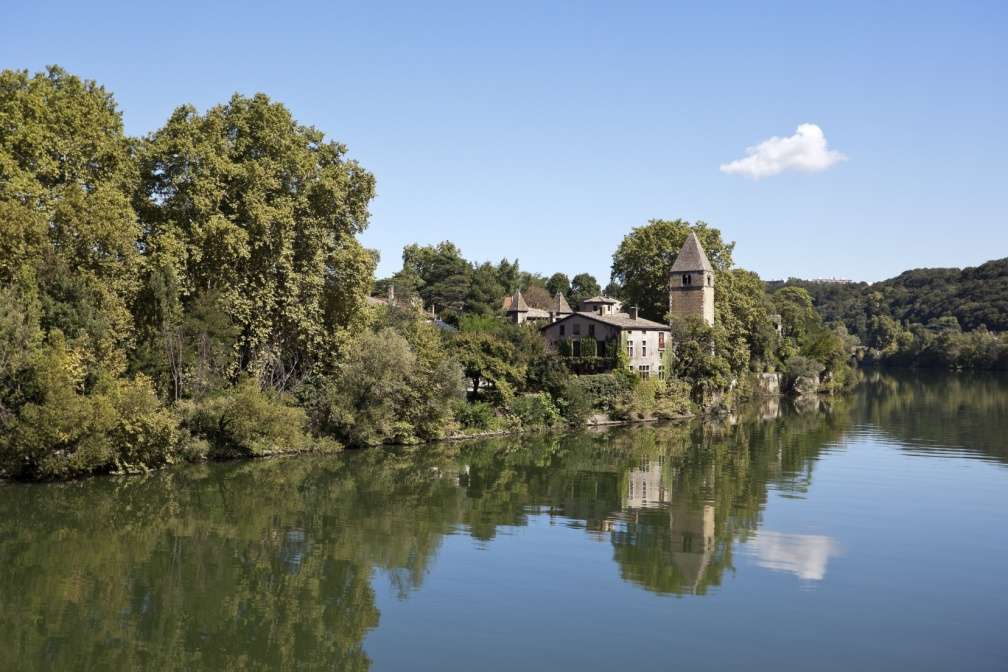
Practical info
An exploration of the river Saône
- Distance: 13 km
- Durée : 25 minutes, not including stops to explore and visit the listed locations
- Slight slope
- Vélo'v stations along the route:
- Saint-Jean: station n°5004, between the cathedral and the funicular
- Île Barbe: station n°9008, 2 Quai Paul Sédaillan
Nature on Lyon’s doorstep: a 30 km ride to Grand Parc Miribel Jonage
On the outskirts of Lyon, a few kilometres to the north Grand Parc Miribel Jonage beckons you into its green spaces.
It’s best to allow a whole day for this outing and to take a picnic. Relatively flat, it is accessible both by push bike, preferably a hybrid or mountain bike, and electric bike. Vélo’v bikes are not recommended as they are too heavy for this distance. What’s more, the last Vélo’v station where you would be able to drop your bike off is 4.3 km from the park.
This itinerary includes cycle paths, roads and gravel paths. Make sure your tyres are sufficiently inflated.
Starting out from the banks of the Rhône, by Pont de la Guillotière, make your way up the river and around Tête d’Or park.
Next, enter the Nature park of La Feyssine, a wooded space alongside the river, with jogging and cycling paths, as well as varied fauna and flora. This is a pleasant shaded section where you can take a break.
Continue via Boulevard Laurent Bonnevay onto Rue-de-la-Feyssine. Cross the Rhône to reach the passageway beneath the Croix-Luizet motorway bridge. Next, follow Rue Eugène-Pottier to Rue-du-Canal, well away from the traffic.
You then simply have to follow Canal-de-Jonage to reach the park. In the park, you will find a number of beaches, facilities and areas to spend a pleasant day.
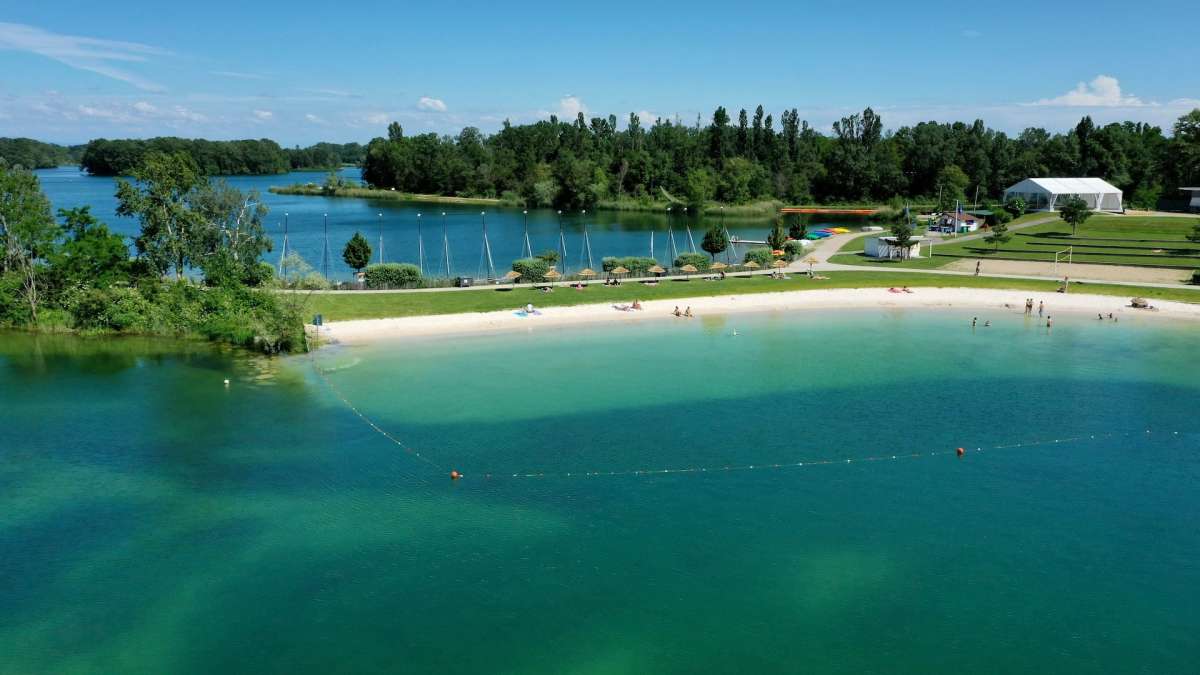
Practical info
Nature on Lyon’s doorstep
- Distance: 30 km
- Duration: 50 minutes, not including stops to explore and visit the listed locations.
- Mostly flat
DISCOVER
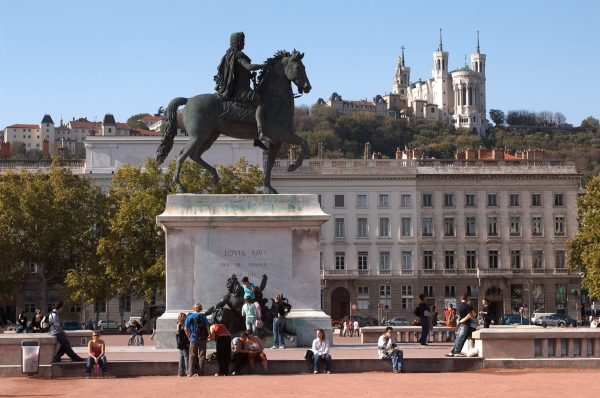
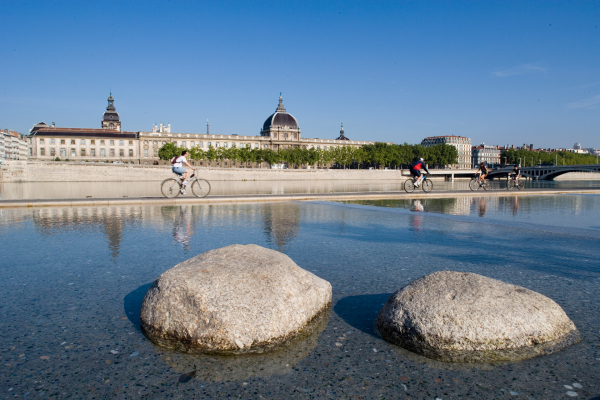
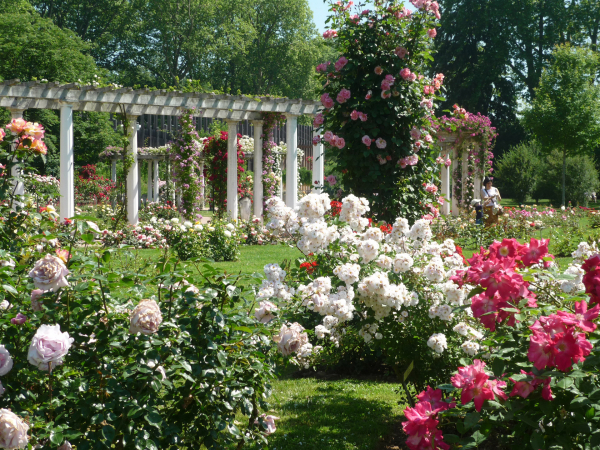
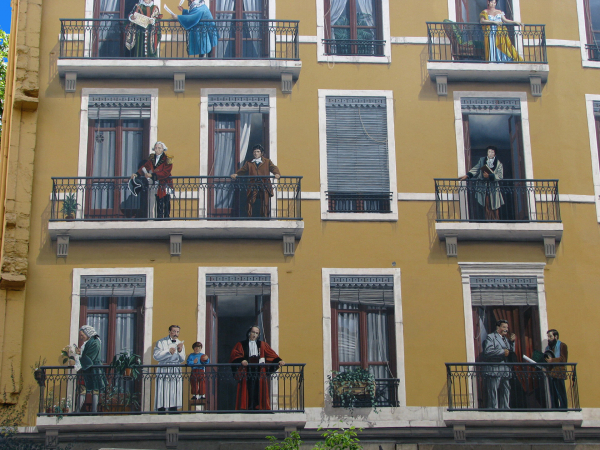
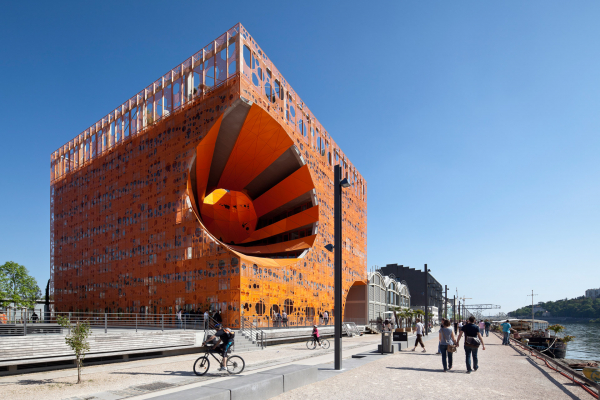
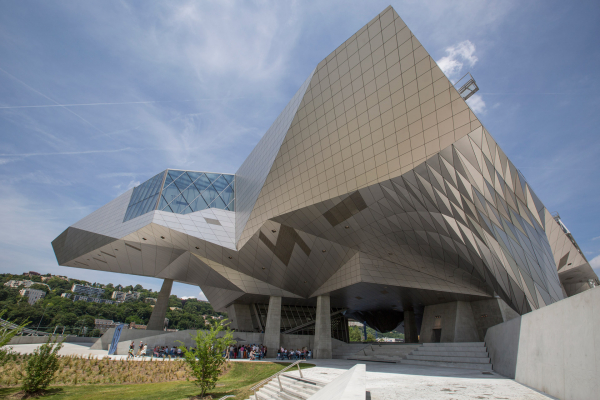
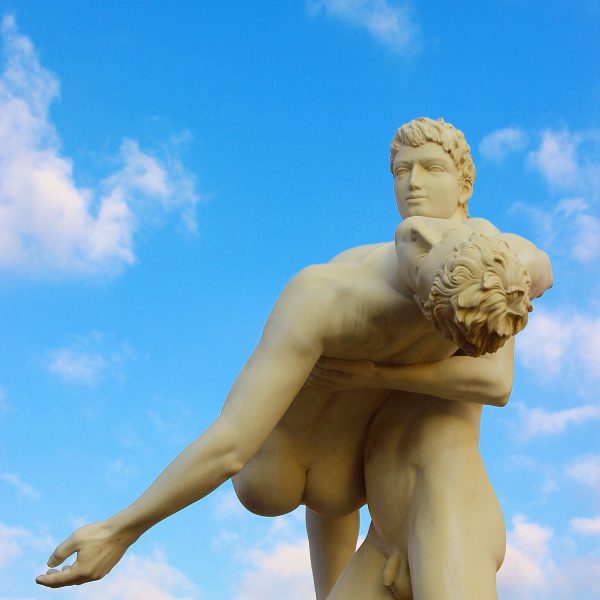
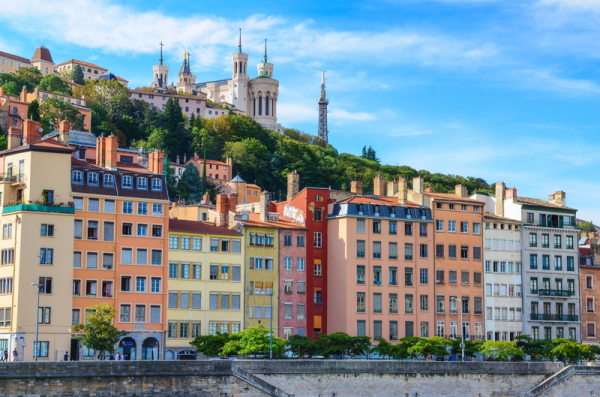
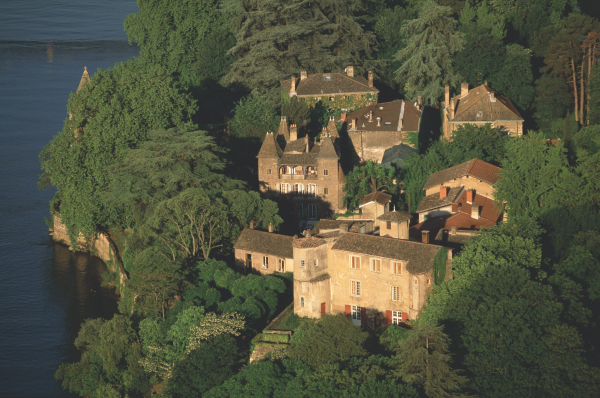
.jpg)

